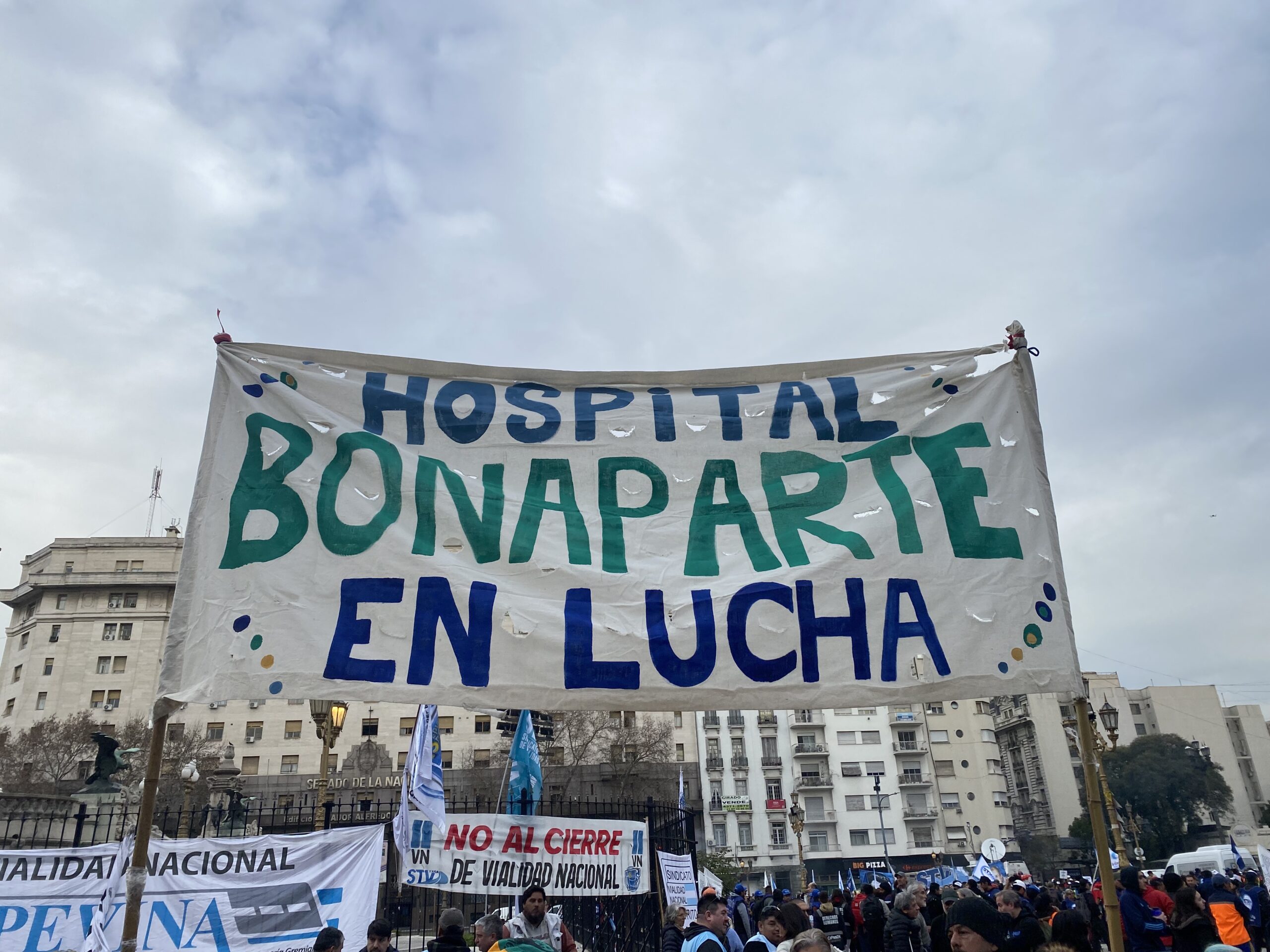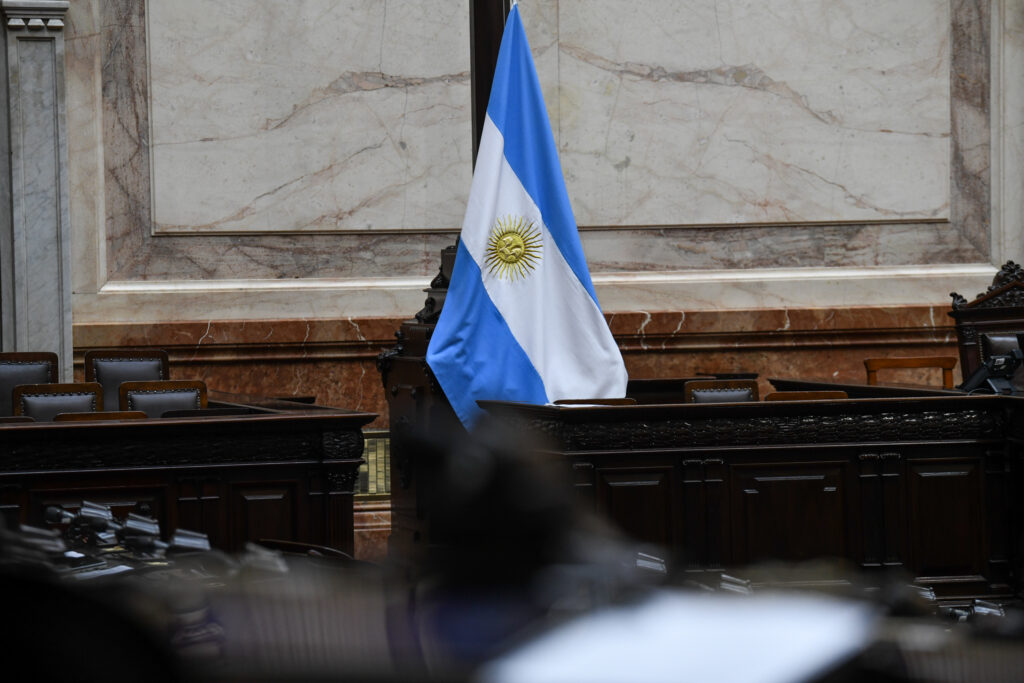Disability rights activists have celebrated the decision by Argentina’s congress to reject President Javier Milei’s veto of an emergency disability law.
The law, which would see higher pensions for disabled people and increased disability spending, was first approved by lawmakers on June 5. It was vetoed by Milei on August 4.
On August 20, 172 members of Argentina’s House of Representatives voted in favor of upholding the emergency law and overturning the veto. Seventy-three representatives voted against doing so, and two abstained.
The vote then progressed to the senate, where 63 of 70 senators voted on September 4 in favor of upholding the law, with just seven voting against. Two senators were absent.
Since becoming president, Milei has been criticized for his government’s treatment of disabled people, with Mónica Bascuñan, a spokesperson for the Disabled People’s Observatory in Mendoza, telling Latin America Reports: “The disabled sector is experiencing a brutal crisis because of Milei’s government.”
Argentina’s National Disability Agency was last year found by Argentina’s Working Group on Disability and Human Rights to be in a state of “notable precariousness,” having laid off 170 workers, including 16 with disabilities. The agency also had no updated annual budget and had “practically deactivated” its national fund for the social inclusion of disabled people.
The Working Group also condemned the government for its “lack of accessibility in public communication” and its “terrible reiteration of violent or degrading speeches towards people with disabilities, by the president and other actors in his political sector.”
The government was in February forced to backtrack on a now-modified official document which referred to disabled people as “idiots,” “mentally weak,” “imbeciles,” and “retarded.”
Bascuñan claimed that Milei’s government “does not respect the convention about the rights of disabled people and their families” and accused the president of “prioritizing the fiscal deficit over the human rights of peoples with disabilities.”
Now, “people with disabilities and their families are demanding that dignified lives be guaranteed for people with disabilities,” she explained.
For Alejandro Sapere, a psychologist at the Laura Bonaparte mental health hospital, the reinstatement of the emergency law represents a “breath of fresh air” amid “the many insults the government inflicts on retirees, people with disabilities, disadvantaged social classes, and children.”
He told Latin America Reports that the move is “an accomplishment for all the families of disabled people” as well as for those who work to provide care for disabled people.

Sapere explained that approximately 40% of the patients at Bonaparte are currently dependent on a non-contributory pension as their only source of income, receiving $294,194,02 pesos (approximately $215 USD) a month, according to the government.
“It is not enough for anything,” Sapere stated.
He described the “unease, uncertainty, and fear” experienced by some patients after the emergency law was vetoed, with some concerned that Milei may further cut their pensions.
“People in the clinic were saying ‘if they take away my pension, the truth is, I don’t know how I’m going to live, I’m going to end up on the streets, I’m better off killing myself,’” Sapere recalled.
He labeled congress’ decision to ratify the emergency law “a source of immense joy,” but remains concerned that Milei may pursue legal measures to prevent the implementation of the law. The president has previously threatened to turn to the courts in the event that his vetoes are not upheld.
Despite describing the prospect of court proceedings as a “specter,” Sapere remains confident that “people are in a very strong position to defend their rights,” adding: “It is auspicious that the Legislative Chamber is taking notice, society is taking notice, and the government is retreating.”
Although Sapere acknowledged that “the case is not entirely closed,” he said the ruling is “an initial step” which “makes it clear to us that we must continue fighting.”
Yesica Godio–a spokesperson for Argentina’s National Network of Care Providers (RENPO) and an occupational therapist–told Latin America Reports that, while the state of emergency “will not resolve all the problems in the [healthcare] system,” it will “at least allow the system to continue operating at a basic level.”
She continued: “The disabled community has shown up to mobilize every Wednesday, along with retirees and in support of other causes. Despite the fact it is difficult for this community to mobilize […] it succeeded in maintaining presence in the streets and exercising social pressure until the veto finally fell.”
Read more: Argentinians protest vetoes to pension and disability funding
Like Sapere, Godio believes the fight for disability rights in Argentina is far from over. She stated: “We remain on tenterhooks, awaiting the government’s next moves” adding that Milei’s government “has declared war on the most vulnerable groups — such as disabled people and retirees — while benefiting other sectors by cutting taxes for the wealthiest.”
“What is at stake are basic rights: health, education, inclusion, and a dignified life for thousands of people with disabilities,” Godio emphasized.
Featured image credit:
Image: Congreso de la Nación, Buenos Aires
Photographer: GameOfLight via Wikimedia Commons
Source: https://commons.wikimedia.org/wiki/File:Congreso_de_la_Naci%C3%B3n_Argentina_04.jpg
License: https://creativecommons.org/licenses/by-sa/3.0/deed.en











